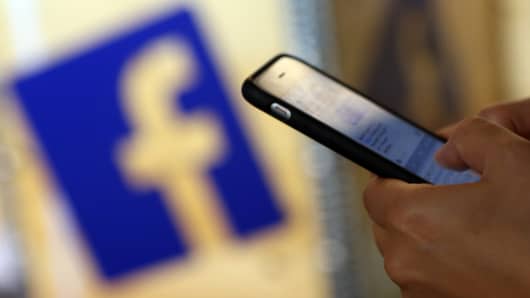It has now been reported by multiple sources that the female shooter in Wednesday's mass killings in San Bernardino posted a pledge of allegiance to ISIS on her Facebook page not long before the attack. Facebook tells CNBC it "identified and removed the suspect Tashfeen Malik's profile for violating its standards." Facebook also says it's cooperating with law enforcement in the ongoing investigation.
But based on this information, I have three open questions that Facebook, all the social media companies, the U.S. government, and all CNBC viewers and CNBC.com readers should consider:
1) Should Facebook immediately report 'pledges of allegiance' or similar pro-Jihadi postings to the FBI/authorities?
It's been established that people on Facebook should not have any real expectation of privacy in a legal sense, even if they only intend to post to their "friends," etc. So I'm not asking a question about privacy rights. My question is whether Facebook and the other social media sites should create programs that automatically flag this kind of content and report it to some government agency? And what about the people who comment and share such postings? How far can it, and should it, go? Oh, and is Facebook doing this reporting already?
2) What should the government do with the information?
Should someone with as few as one apparently menacing or pro-Jihadi post be immediately put under more surveillance? Should they be put on some kind of terror watch list? The list of possibilities is quite long. And depending on what the authorities decide to do with the information, what concern or protections should Facebook show for its users before handing over any menacing posts?
Read MoreChina's Black Friday deal: a new Russian Jet
3) Would it do any good?
We already have a lot of "lists" and surveillance programs in place in this country meant to keep a close eye on potential domestic and foreign terrorists. We can't say for certain how effective they are, and I don't expect anyone in the government who does know to tell us for fear of compromising existing investigation and surveillance practices. But we can ask if it will help to add more meta-data to the list of things government workers and computers are already tasked to follow. I know I'm in favor of compiling lists of and surveilling serious and credible suspects. But we've already found that the "No Fly" list is more than half-filled with the names of very soft "suspects" or even irrelevant names. Does it help to over-stuff the bag?
Plus, some of these menacing postings apparently aren't made until just hours or minutes before actual attacks. How quickly can we expect Facebook, Twitter, or the authorities to snap into action? Do we need to set up a division that can respond to online evidence as it emerges like the "pre-crime" unit in "Minority Report?" Is that even possible or just science fiction?
Read MoreIs this the end of the E.U.?
I realize I've actually asked more than three questions. And there are a lot more to ask. Facebook and its peers should expect more people to ask them in the coming days.



